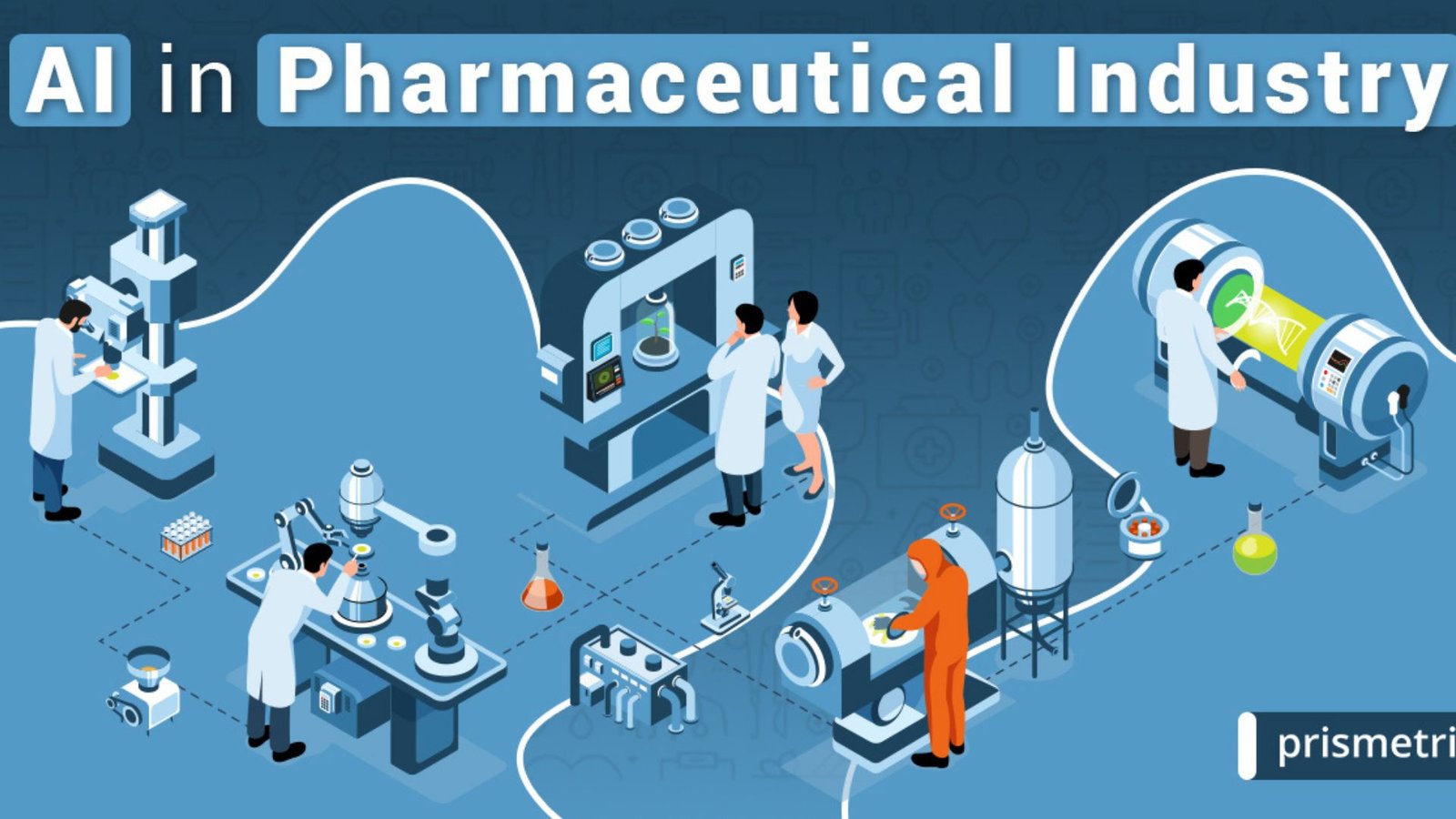Artificial Intelligence (AI) is revolutionizing industries across the globe, and the pharmaceutical industry is no exception. AI is transforming how drugs are discovered, developed, and brought to market. In this blog, we’ll explore the role of AI in the pharmaceutical industry and how it is changing the future of healthcare.

Your Guide to Trusted Online Resources
Finding reliable and engaging online platforms is easier with the right directory at your fingertips. One popular destination for digital entertainment is crazyvegas, known for its exciting and user-friendly gaming experience.
1. Accelerating Drug Discovery
One of the most exciting impacts of AI in the pharmaceutical industry is its ability to speed up the drug discovery process. Traditionally, discovering new drugs takes years and involves testing thousands of compounds. AI is streamlining this process in several ways.
- Predictive Models: AI can analyze vast amounts of data, such as genetic information and molecular structures, to predict which drug compounds are most likely to work. This significantly reduces the time it takes to identify promising candidates.
- Simulations: Instead of conducting lengthy laboratory experiments, AI can simulate the interaction between drug molecules and target proteins. These simulations help researchers identify the best candidates for further testing, cutting down the time spent in the lab.
By speeding up drug discovery, AI can help bring new treatments to market faster, benefiting patients sooner.
2. Personalized Medicine Through AI
AI is playing a pivotal role in personalized medicine, where treatments are tailored to individual patients based on their unique genetic makeup and health history.
- Genomic Data Analysis: AI systems can analyze genetic data to identify patterns and correlations between genetic variations and disease risk. This allows researchers to create more effective, customized treatments that are better suited to each patient.
- Predicting Treatment Responses: AI can also predict how patients will respond to certain treatments based on their genetics, lifestyle, and medical history. This helps doctors choose the best treatment options, improving patient outcomes.
Personalized medicine powered by AI is revolutionizing how doctors approach treatment, making it more precise and effective.
3. Optimizing Clinical Trials
Clinical trials are an essential step in developing new drugs, but they can be costly, time-consuming, and difficult to manage. AI is improving the clinical trial process by making it more efficient.
- Patient Recruitment: AI can analyze patient data to identify individuals who are most likely to qualify for clinical trials. This not only speeds up recruitment but also ensures that trials are conducted with the right participants, increasing the likelihood of successful outcomes.
- Monitoring and Data Analysis: During clinical trials, AI can monitor patients in real time, collecting data on their health and response to treatments. This allows researchers to detect issues early and adjust the trial protocol accordingly.
- Predicting Trial Success: By analyzing data from previous trials, AI can predict the likelihood of success for new drugs. This helps pharmaceutical companies decide which drugs to focus on and which to abandon.
AI is making clinical trials faster, cheaper, and more effective, bringing drugs to market more quickly and safely.
4. Improving Drug Manufacturing
AI is not just changing drug development but also the drug manufacturing process. Pharmaceutical companies are using AI to increase production efficiency, reduce costs, and ensure product quality.
- Automation: AI-powered robots and machines are being used to automate the manufacturing process, reducing the need for human intervention and minimizing the risk of errors. This leads to more consistent production and higher quality drugs.
- Predictive Maintenance: AI can predict when manufacturing equipment is likely to fail, allowing companies to perform maintenance before issues arise. This minimizes downtime and keeps production on schedule.
- Quality Control: AI can also be used to monitor the quality of drugs during production, detecting any deviations from the required standards. This helps ensure that only high-quality drugs reach the market.
With AI, pharmaceutical companies can manufacture drugs more efficiently and with greater precision, improving supply chain operations and product quality.
5. Enhancing Drug Repurposing
AI is also being used to identify new uses for existing drugs. Known as drug repurposing, this process can help find treatments for diseases that currently have limited or no treatment options.
- AI Models for Drug Repositioning: AI systems can analyze large datasets to identify patterns and correlations that suggest a drug used for one condition could be effective for another. This can lead to faster development times, as the safety profile of existing drugs is already known.
- Speeding Up the Process: Repurposing drugs with the help of AI can significantly shorten the development timeline, allowing life-saving treatments to reach patients more quickly.
Drug repurposing powered by AI is helping pharmaceutical companies maximize the potential of existing drugs, opening new treatment options for patients.
6. Enhancing Pharmacovigilance
Pharmacovigilance is the science of monitoring the safety of drugs once they are on the market. AI is transforming how pharmaceutical companies track and assess the safety of their products.
- Real-Time Monitoring: AI can analyze vast amounts of patient data, such as medical records, social media, and drug-related reports, to detect potential adverse drug reactions. This allows for quicker identification of safety concerns.
- Predictive Analytics: AI can also predict potential safety issues based on patterns in the data. This helps pharmaceutical companies take proactive measures to address concerns before they become widespread.
By enhancing pharmacovigilance, AI is improving the safety of drugs and ensuring that patients continue to benefit from the latest treatments.
7. AI in Drug Pricing and Market Access
AI is also helping pharmaceutical companies navigate the complex world of drug pricing and market access. By analyzing market trends, regulatory requirements, and patient needs, AI can help companies make data-driven decisions.
- Optimizing Pricing Models: AI models can analyze factors like production costs, market demand, and insurance reimbursement rates to help pharmaceutical companies set optimal prices for their drugs.
- Improving Market Access: AI can help identify the best strategies for launching drugs in different markets, taking into account regional regulations, patient needs, and the competitive landscape.
AI is making the drug pricing and access process more efficient, ensuring that drugs are priced appropriately and accessible to those who need them.
Conclusion
AI is transforming the pharmaceutical industry in profound ways. From accelerating drug discovery to improving clinical trials and drug manufacturing, AI is making the entire drug development process faster, more efficient, and more precise. As AI continues to evolve, we can expect even more breakthroughs that will improve healthcare outcomes and provide better treatments for patients worldwide.
By harnessing the power of AI, the pharmaceutical industry is paving the way for the future of medicine, ensuring that innovations continue to reach those who need them the most.











